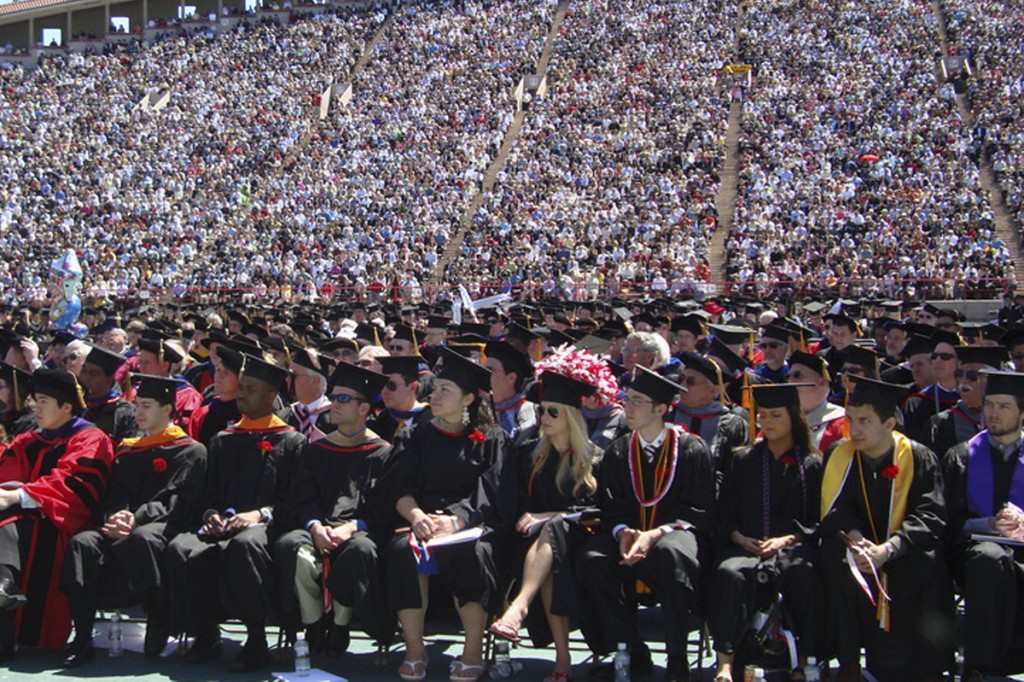
“Maher” and “controversy” may as well be synonyms. UC Berkeley students recently launched a petition to rescind comedian and political commentator Bill Maher’s invitation to speak at their midyear commencement after he unabashedly made Islamophobic comments on his show “Real Time With Bill Maher.” The commencement ceremony is, coincidentally, the 50th anniversary of the Free Speech Movement. Some may be tempted to guffaw at the perceived irony; however, this is only one aspect of a much more convoluted issue — one that is not as ironic as it may seem.
Maher’s now-famous “Real Time” debate with Oscar-winner Ben Affleck resulted in a thought-provoking CNN interview with UC Riverside professor and religious scholar, Reza Aslan. Maher masks his bigotry behind misguided attempts to enlighten Muslims and all other adherents of religion. While criticism of organized religion and other social institutions is pragmatic, and often a necessity, stereotyping all Muslims — the tactic that Maher employs — is intellectually dishonest as well as the antithesis of a cogent argument.
Keeping in mind the increasing number of hate crimes committed against Muslims that are largely unacknowledged by the media, manufacturing fear of Islam assuredly has fallout. Bigotry is a dangerous and insidious sentiment. It is irresponsible to normalize it on a popular television show, especially when Maher presents his opinions as indisputable facts despite the overwhelming evidence to the contrary, such as this sweeping overgeneralization: “All religions are stupid, Islam just happens to be the one right now, in this century, that’s most dangerous and violent.”
Considering the San Diego Muslim woman who was murdered in her own home, or the Sikh man who was pushed in front of a New York subway because the woman who murdered him thought he was a Muslim, people’s safety needs to be prioritized. Breeding hostility toward a group of people is toxic. Respect, acceptance and coexistence are values worth sharing — ones that actually benefit humanity.
As Aslan articulately responded, “Islam doesn’t promote violence or peace. Islam is just a religion, and like every religion in the world, it depends on what you bring to it. If you’re a violent person, your Islam, your Judaism, your Christianity, your Hinduism, is going to be violent.” Islam is a doctrine. It’s neutral. The manner in which people apply it should not reflect on the doctrine; rather, it should reflect upon the individuals themselves.
In response, one may postulate that religion is the problem. Josef Stalin, Pol Pot, Benito Mussolini — all were atheists, and all committed atrocious crimes against humanity. The problem lies within human nature. Positing that Islam or atheism is the root of humanity’s problems shows nothing but a lack of insight — an inability to understand and interpret history.
Congressman Keith Ellison, the first Muslim to be elected to Congress, said, “The fact is, whenever you have an ideology — whether it’s secular or religious — and you’re willing to kill and murder other people to impose it on them, you’re dangerous, and you’re a problem.”
It’s important to note that freedom of speech protects citizens from censorship by their government. It does not protect anyone from the consequences of spewing hate or slander. This coincides with the petition, which reads, “In a time where climate is a priority for all on campus, we cannot invite an individual who himself perpetuates a dangerous learning environment.”
If a commencement speaker is meant to bestow knowledge upon university graduates, then it’s unsurprising that some students don’t want Maher to be the voice on stage. Making bigoted comments, not surprisingly, invalidates one’s ethos. Does Maher have the right to speak at the commencement? Absolutely. But whether or not he’s someone who promotes the tenets of higher institutional learning remains controversial.
Above all, this day is about the students, not Maher. This is the students’ commencement, and subjecting Muslim students to this is profoundly unfair on Berkeley’s part.
UC Berkeley issued a statement that their decision to not revoke the invitation “does not constitute an endorsement of any of Mr. Maher’s prior statements.” Universities may not endorse the views of all their commencement speakers, sure, but this goes beyond a simple disagreement with Maher on the students’ part. Maher is denouncing the existence of 1.5 billion people based on the actions of a fraction of them.
“Real Time” racks in about 4.1 million viewers per episode. Maher’s pernicious statements have evident consequences. If the argument for Maher’s freedom of speech still stands, then it’s no doubt that the UC Berkeley students are exercising their freedom of speech too by speaking up. These students are carrying on a tradition of free speech by voicing their concerns, perfectly in line with the anniversary of the Berkeley Freedom of Speech movement.








